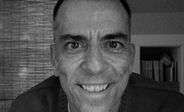It has been a spectacular year for books about mistakes and learning from them. Here’s the list of must-haves:
1. Brilliant Mistakes, Paul Schoemaker. Five years after publishing a terrific HBR article on the subject, Schoemaker celebrates mistakes as, in Joyce’s words, “portals of discovery,” a way of navigating through a largely unpredictable world.
And he presents a compelling case for making “deliberate mistakes”–creating projects that go against the conventional wisdom in a strategic way, in order to uncover invalid assumptions and shifts in the environment. From Schoemaker: Companies strive for error elimination, hiring advisers and relying on sophisticated management tools such as Six Sigma. It’s little wonder, then, that most decision-making books follow suit, encouraging you to focus narrowly on mistake avoidance today rather than provoking you to plan for the stream of decisions that you will face tomorrow.
2. The Progress Principle: Using Small Wins to Ignite Joy, Engagement, and Creativity at Work, Teresa Amabile and Steven Kramer. A mammoth research project that tracked the activity and temperament of dozens of workers and managers on a daily basis brought forth a simple, startling insight: workers are happier and more productive when they make continual progress toward meaningful goals, and unhappy/unmotivated when obstacles are put in their way. The application of this insight improves both managers’ effectiveness and workers’ self-regard. Why is this book on the Mistake Bank list? Because the authors urge managers and workers to face reality, even if it’s unpleasant, and handle setbacks with grace and persistence. From the book: By its very nature, meaningful work is hard; people often get the greatest satisfaction from overcoming the most difficult challenges. Failure is inevitable along the path to innovation. Though you should try to minimize obstacles and setbacks under your control, you can never create a problem-free bubble for your people. You can’t nourish inner work life if you drive yourself and your team crazy trying to avoid all problems. Rather, focus on providing people with the catalysts and nourishers they need to overcome the obstacles they will inevitably face.
3. Thinking, Fast and Slow, Daniel Kahneman. One of the fathers of behavioral economics and a Nobel Prize winner, Kahneman sums up the lessons he’s learned in his decades of studying human nature – and is not above using himself as a subject. Kahneman writes: One of [my] themes is that people who face a difficult question often answer an easier one instead, without realizing it. We were required to predict a soldier’s performance in officer training and in combat, but we did so by evaluating his behavior over one hour in an artificial situation. This was a perfect instance of a general rule that I call WYSIATI, “What you see is all there is.” We had made up a story from the little we knew but had no way to allow for what we did not know about the individual’s future, which was almost everything that would actually matter.
4. Better Under Pressure: How Great Leaders Bring Out the Best in Themselves and Others, Justin Menkes. A book that illustrates what corporate senior leaders need to do to succeed. Menkes describes great executives’ understanding of their own fallibility and their willingness to take responsibility for mistakes (”owning their missteps”) as keys to flourishing in the pressure-cooker of corporate leadership. From Menkes: Leaders adjusting to a significant increase in responsibility invariably make many mistakes. Those who ultimately excel recognize and own these missteps quickly and use the experiences to grow into their positions of elevated authority and increased complexity. But for this learning curve to occur, it is absolutely crucial that they accept their role in these mistakes. If they have a low sense of agency, they cannot, and will fail.
5. Mindset: The New Psychology of Success, Carol Dweck. I’m cheating here – “Mindset” was published in 2006. But I didn’t read it till this year, and without a doubt Dweck’s research and writing are among the most influential in the learning field, especially among other academics. She was referenced in more of my reading than any other scholar (Kahneman was #2).
From Dweck: Tom Wolfe, in The Right Stuff, describes the elite military pilots who eagerly embrace the fixed mindset. Having passed one rigorous test after another, they think of themselves as special, as people who were born smarter and braver than other people. But Chuck Yeager, the hero of The Right Stuff, begged to differ. “There is no such thing as a natural-born pilot. Whatever my aptitude or talents, becoming a proficient pilot was hard work, really a lifetime’s learning experience.… The best pilots fly more than the others; that’s why they’re the best.”
What were the best business books you read this year? Weigh in below in the comments section.
Original Post: http://caddellinsightgroup.com/blog2/2011/12/best-books-of-the-year-2011/




